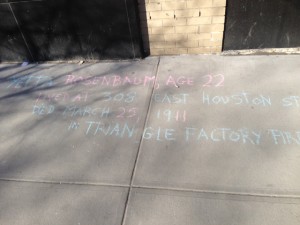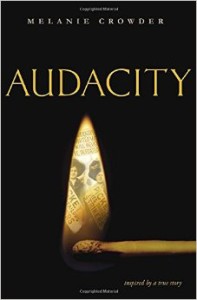The early part of the twenty-first century has been called the New Gilded Age because of growing inequality, worsening work conditions, and the way that the richest Americans have used their economic power to gain special favors from politicians at the expense of everyone else. People during the original Gilded Age more than a hundred years ago faced trying times as well. Protections for workers didn’t exist at all. Along with a race to the bottom in terms of wages, workers as young as five years old toiled long hours in sweatshops under uncomfortable and unsafe conditions. The Triangle Shirtwaist fire of March 25, 1911, killed 146 garment workers, most of them young women who had been locked inside the factory by their unscrupulous employer. This, the deadliest industrial accident in New York City, led to major reforms. Pushing those reforms were a generation of young immigrant labor leaders who sacrificed much to make work pay, and to make work safe.
Among those young “upstanders” was a Russian-born Jewish activist named Clara Lemlich. Melanie Crowder’s new novel in verse, Audacity, explores Lemlich’s life, beginning with her childhood in Russia, where she and her family dodged pogroms while she chafed against the restrictions imposed on her because she was a girl. Moving to America, she found new restrictions, in the form of having to work ten hours a day, seven days a week, to help support her family on what little she made. Often, the bosses stole the workers wages by shortchanging them on payday or firing them without giving them what they’d already earned that week. This happened to Clara several times. Nonetheless, Clara went to English classes and the library every day after work to study, in the hope of getting a scholarship to medical school. That left her tired at work, and her father beat her for not doing her chores. She also felt torn between bettering herself by studying medicine, or bettering all the other women workers by becoming a labor leader.
 Through eloquent free verse, Crowder conveys the emotional power of young Clara’s choices and actions. Readers see her struggling with her narrow range of options and the risks she takes to give every poor young woman more choices in life. Crowder sets us in the middle of early twentieth century New York City, immersing us in the filthy tenements, the teeming streets, and demonstrations brutally suppressed by police and thugs hired by private employers. Readers will understand the struggle and violence (mostly against the workers) that accompanied the labor protections that we have attained—but are in serious danger of losing. An informative Author’s Note presents Lemlich’s later life, when she married fellow organizer Joe Shavelson (who appears as a minor character in Audacity), joined the civil rights and anti-war movements, and passed the baton to her children and grandchildren who continue to fight for justice today.
Through eloquent free verse, Crowder conveys the emotional power of young Clara’s choices and actions. Readers see her struggling with her narrow range of options and the risks she takes to give every poor young woman more choices in life. Crowder sets us in the middle of early twentieth century New York City, immersing us in the filthy tenements, the teeming streets, and demonstrations brutally suppressed by police and thugs hired by private employers. Readers will understand the struggle and violence (mostly against the workers) that accompanied the labor protections that we have attained—but are in serious danger of losing. An informative Author’s Note presents Lemlich’s later life, when she married fellow organizer Joe Shavelson (who appears as a minor character in Audacity), joined the civil rights and anti-war movements, and passed the baton to her children and grandchildren who continue to fight for justice today.
1 comment for “Learning From the Past to Stand Up for Our Rights: A Review of Audacity”